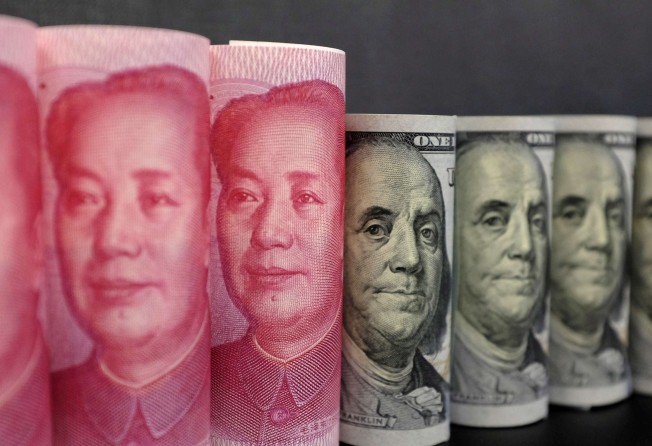Chinese borrowers rush to cancel bond issuance amid market turmoil
Up to 20 companies cancelled bond sales worth 18 billion yuan from December 14 to 16, citing ‘market volatility’

With China’s bond market in unprecedented turmoil, many Chinese companies have cancelled or put off their plans to issue debt, and even the normally popular government bond auctions have been met with muted enthusiasm.
Analysts see no immediate relief from the tighter liquidity conditions widely blamed for the recent tumble in bond prices.
In the three days from December 14 to 16, up to 20 companies cancelled bond issuance worth more than 18 billion yuan, according to data from China Central Depository & Clearing (CCDC).
Among them were Shandong Iron and Steel Group, which cancelled 2 billion yuan in short-term bond issuance, and China National Salt Industry Corporation cancelled a sale of 1 billion yuan in medium-term notes.
The reason cited by most borrowers for cancellation was “market volatility”.
So far in December, a total of 45 bond sales have been cancelled or postponed due to unstable market conditions, compared to 32 for the whole of November, according to the CCDC data.
Company bonds are not the only ones to have been hit by the market turmoil; even trusted government bonds have suffered.
In an auction last Friday of 12 billion yuan of 3-month and 10 billion yuan of 6-month bonds by China’s Ministry of Finance, only 10.35 billion yuan and 9.37 billion yuan worth, respectively, were sold, according to CCDC. That constitutes a technical fail, which is rare for Chinese government bonds.
It came amid a record sell-off in China’s bond market.
The country’s benchmark 10-year and 5-year treasury futures both tumbled by the maximum allowed on Thursday for the first time in their history, after the US Federal Reserve raised its key interest rate by 0.25 per cent and delivered a statement pointing to more interest rate rises than had been anticipated.
Most analysts believe the bond market sell-off was triggered by the Fed’s rate decision, as well as the Chinese central bank’s recent moves to tighten liquidity in an effort to reduce leverage in the market. Speculation of defaults has further intensified panic.
China’s benchmark 10-year government bond yield has risen steeply since late October, surging from 2.65 per cent to hit a high of 3.39 per cent last week.
Bond prices rise inversely to bond yields.
Accordingly, borrowing costs for companies have risen by over 100 basis points from a month earlier, according to a report from China International Capital Corp (CICC).
“The [bond] correction is unprecedented and its blow to the market is even bigger than 2013 when the market was hit by a severe liquidity squeeze,” said Chen Jianheng, an analyst at CICC.
“Investors’ enthusiasm in bidding for bonds is very weak in the primary market, and the winning rate is significantly higher than the secondary market, which drives rates in the secondary market even higher.
“If the tightening situation lasts longer, it will continue to impact banks’ credit extension and borrowers’ bond issuance, debt turnover and substantially increase default risk.”
To stabilise the market, the People’s Bank of China (PBOC) injected 394 billion yuan into banks via its medium-term lending facility (MLF) on Friday after guiding banks to release long-term liquidity to non-banking institutions the previous day.
Despite that, most analysts believe the tightening could last for a while.
“There is still a liquidity shortage in the market and the central bank is expected to resort to MLF and other non-traditional tools to provide liquidity to the market,” said Ming Ming, chief fixed-income analyst at Citic Securities in Beijing.
Given the PBOC’s determination to reduce leverage in the market, bond yields are expected to rise into early next year, according to a report from CIB Research.